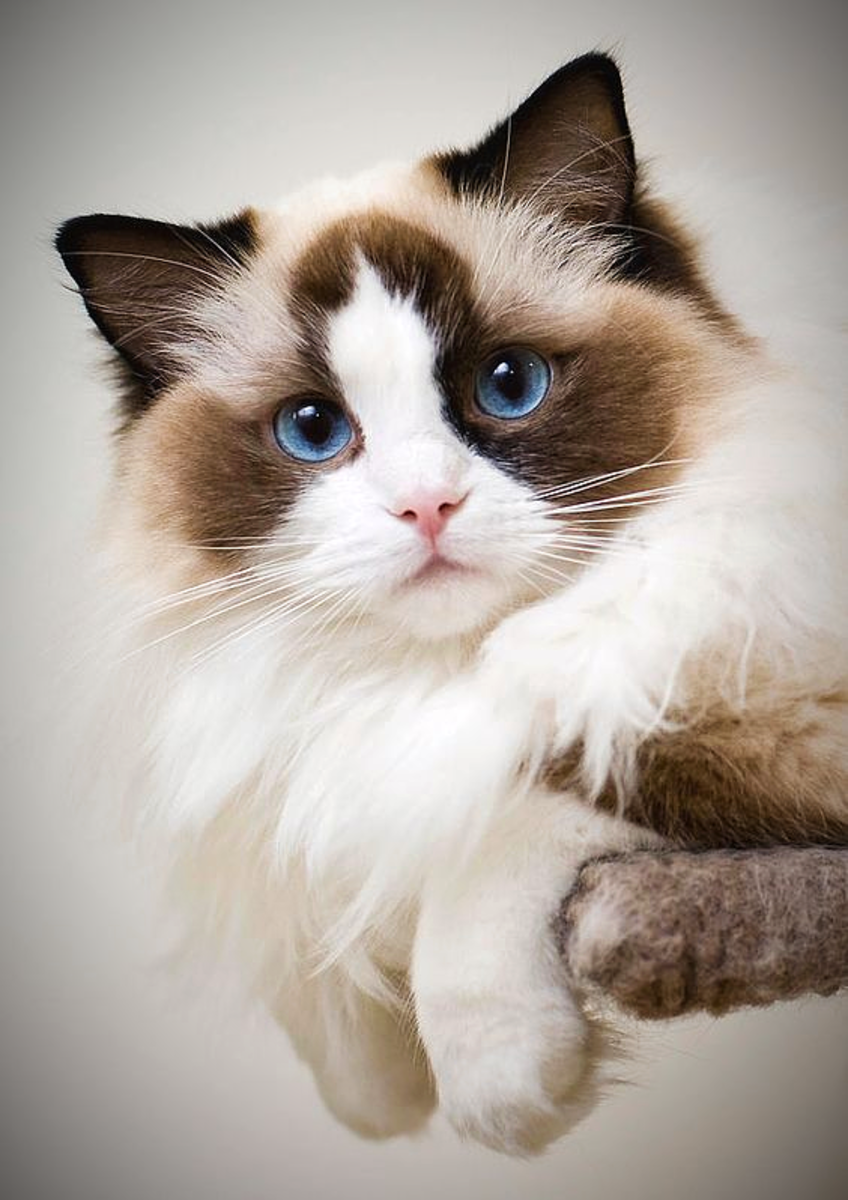How to Care for and Look After your Cat or Kitten
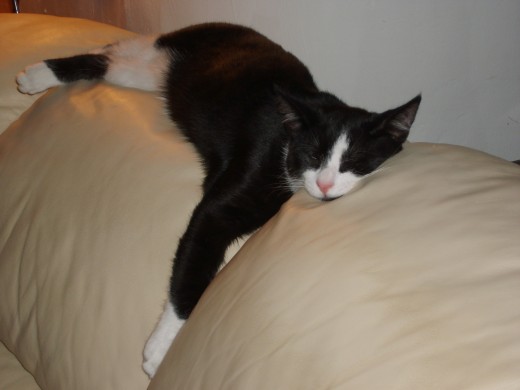
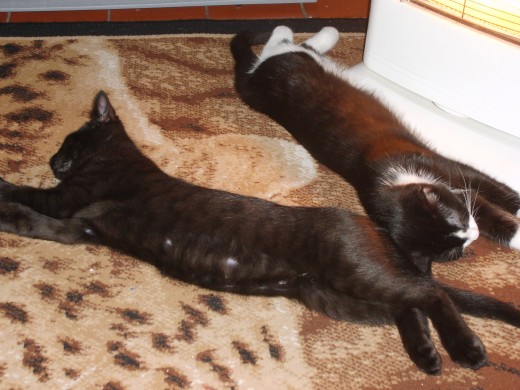
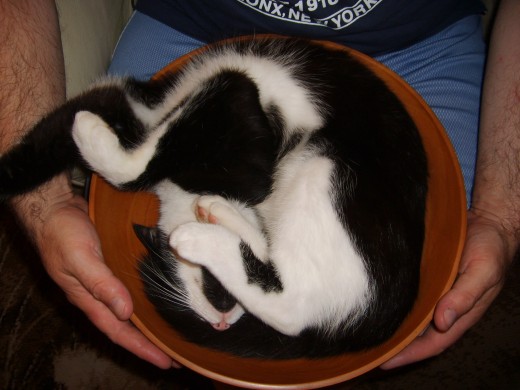
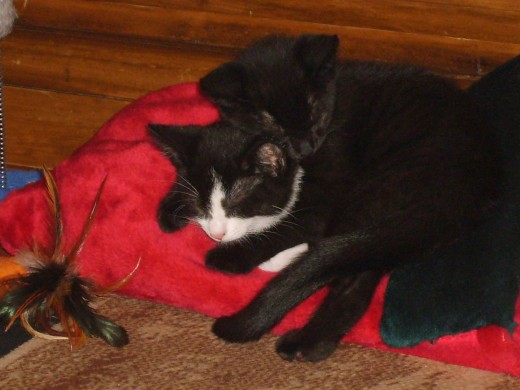
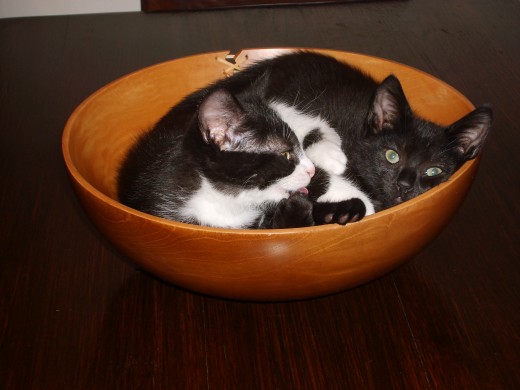
Caring for your new Cat or Kitten
It is always exciting when you first make the decision to get your own kitten or cat, but before you commit to your new pet and bring him or her home there are serious considerations you need to make.
The first important decision is can you afford this addition to your family? Although the average "moggie" cat is is usually free, this does not mean the day to day needs of your pet will also be.
Vaccinations
You will need to consider the fact that is is vitally important your cat receives his initial vaccination course from the age of 9 weeks onwards to avoid getting Feline Leukemia and Cat Flu. If you fail to do these injections your cat will be very susceptible to catching Feline Leukemia from any infected cat he comes across that may scratch or bite him. This disease is incurable, and at best would leave you with the hard decision of either keeping your cat indoors for the rest of his life to avoid him infecting other cats, or possibly having to consider putting him to sleep. A very sad situation which could have easily been avoided. Cat Flu is often fatal to young kittens, and if they do survive it is pointless inoculating them against it as they have now become carriers, and will periodically suffer from bouts of the illness throughout their lives. The cost for this course of injections will vary from practice to practice, but as a guide you should expect to pay around £20 to £30 for the course of two injections, followed by annual boosters costing around another £30. If you adopt your cat from a rescue centre you will usually find the cat has already been vaccinated and will only need the annual boosters from there onwards.
Worming
If you have taken on a kitten you will need to consider the costs of worming your cat monthly for the first six months of it's life, before going on to worming every three months throughout it's adult life, (more frequently if your cat ends up being a hunter). The cost of an average cat worming tablet is around £3, but this can also be administered as a "spot on" liquid to the back of the neck, which is easier than trying to get a tablet down your cat, but works out slightly more expensive at around £5.50 per time. This worming is however very important, as otherwise your cat will quickly become infested with both Roundworm and Tapeworm, and in other countries outside of the UK there is also a risk of the fatal Heartworm, which eventually can kill your pet if left untreated. You will recognise symptoms of Tapeworm when you see small white wriggling segments around your cats rear end. Once these are visible the cat is badly infested and it is possible for humans to catch the tapeworms from their pet. Roundworms are usually seen in vomit that the cat brings up, and are usually still moving around within the liquid. Heartworm is harder to spot, because you may only notice symptoms, such as panting and lethargy in your pet, but left untreated you will cause your pet a slow and painful death.
Flea Treatments
These are best administered monthly using a "spot on" product purchased from your vets. Usual products include "Frontline Combo" and "Advocate". These are applied on the back of the cat's neck on the skin itself, and the liquid will then disperse and gradually treat the whole cat. Fleas are killed anything between one and twenty four hours later depending on the product used. Very young kittens may have to be treated with milder products also obtained through your vets. Please do not be tempted to buy products from supermarkets or the internet, as whilst they may be cheaper, they have very little effect and are truly a waste of money. Flea collars are not adviseable either, as these rely on the fleas making their way up to your cat's neck, and the fleas that are in other areas will continue to thrive. They are also potentially dangerous, (as is any collar) unless they have an elastic insert or a quick snap release built in. Many cats have died from getting their collar caught on a tree branch or a fence wire, and have ended up hanging themselves. It is also worth mentioning that many people are under the impression they need only treat their cat for fleas throughout the Summer, as they believe fleas will die off in the cold of Winter. This too is untrue, as we live in a society where most people have central heating, so the fleas do not die off, but will thrive not only on your pet, but also in your household soft furnishings, e.g. curtains, rugs, carpets, bedding, under sofa cushions etc. If you have such an infestation you can buy good quality products such as "Staykill" to treat these household items, (do not use directly on your pet though), and the effects will stay in your carpets etc for twelve months. The cost of good quality flea treatments is around £18 for a three month supply, but well worth the investment. To treat household furnishings with a spray will cost around £16. You should be aware that regular flea and worming go together, as fleas will infest your cat with Tapeworm. If you suspect your cat has both fleas and worms you should always treat the fleas first, as the treatment will last a month and avoid them reinfesting your cat with worms. If you were to worm your cat first in these circumstances, the fleas would immediately reinfest your cat with Tapeworm as the worming tablet can only kill the worms that are currently inside your pet, leaving your pet immediately succeptable to reinfestation if the fleas are still present.
Microchipping
A very important consideration is whether to get your pet microchipped or not, and if so which kind of chip to get. A microchip is a small barcode set in a grain of rice sized piece of metal which is inserted under your cats skin around the neck area. This usually causes little discomfort to the cat and is administered in the form of an injection. Your details are then registered with a central organisation who will contact you in the event your cat is ever taken into a vets, rescue centre or police station after it has gone missing. The chip can be read by a simple handheld scanner, and any pets that are found are routinely checked for a microchip by all the above organisations. This can ensure you and your pet are never parted for long, and can save weeks of wondering what happened to your pet if it goes missing, possibly never to be reunited with you. The main microchip used is called a "Tracer", and this does exactly what I have described above, as well as being compatible with microchip recognising cat flaps that will only allow your cat to go through them.
The second kind is called a "Biotherm", and this one contains an inbuilt thermometer which allows your vet to take your cat's temperature without the need for a rectal thermometer. This feature is especially useful if your pet is ill for a matter of days and has to stay at the vets, as it reduces the stress of having repeated rectal temperatures taken. Unfortunately this chip will not work with the Microchip recognition cat flaps. The cost of the microchips varies, with the basic Tracer Chip being around £15 and the Biotherm being about £20.
Neutering
Around the age of six months you should consider having your cat neutered, (spayed or castrated). Many people, especially men, seem to find this a difficult decision, but I suspect this is more because they feel they would not like it done to themselves. It is actually far kinder and more responsible to get this done for a number of reasons.
Your cat is far less likely to fight with other cats and risk getting infected with either Feline Aids (FIV) which is incureable and cannot be innocculated against, or Feline Leukemia (if your pet is not already innocculated against this).
You will be helping ensure that more unwanted cats in rescue centres are offered good homes rather than adding to the often abandoned cat population.
You will not be allowing your female cat to be repeatedly made pregnant by male cats, which is not only a physical drain on her body, but is also a very unpleasant experience due to the fact that male cats have a barbed penis, which tears the female cat inside as it is withdrawn. As a female cat can be impregnated by several males to produce the same litter of kittens this is going to cause her a lot of pain and distress.
Your male cat will not end up spraying very strong smelling cat urine all over your home to scent mark it as his territory. He will also smell a lot better himself rather than the usual very strong "Tom Cat" smell that most people loathe.
Your male cat will not end up with torn ears looking battle scarred and incurring you various vets bills to repair his fighting injuries.
Your cat is less likely to wander long distances in search of mates, risking traffic injuries or getting lost.
It will save you the worry of ensuring you get good homes for any kittens that are produced, as well as saving your home furnishings from the damage a litter of playful kittens will leave in their wake.
There is absolutely no reason to let a cat have one litter before you spay her, and this is another myth that many people believe, She will not change her personality for the sake of not having been "allowed" to have kittens.
The cost of having your cat spayed or castrated varies between around £45 to £65 depending on whether that cat is male or female. It is a quick and simple operation, and your cat will return to it's normal behaviour within about 24 hours. If your cat was a male that was spraying in your home, he may take a few weeks, or even a month or so before the hormones in his system dissipate and he ceases to feel the need to continue this behaviour.
Your new adult cat or older kitten may already be in season if you see signs of her being overly affectionate with you, very vocal in her cries and rubbing her belly along the carpet. In this case keep her in until her season stops and then take her to the vets for spaying. They are unlikely to spay her whilst she is in season because of the higher risks of bleeding during the operation due to the increased amount of blood in the uterus. If you do not spay her she will most likely continue to come into season every couple of weeks until she is spayed.
Pet Insurance
I cannot emphasise enough how important this insurance is. In a day and age where vets bills rapidly mount up to thousands of pounds it is well worth paying the six or seven pounds a month it will cost you to get your cat insured. These insurances will not cover routine treatments such as inocculations or neutering, but they will cover medical bills that may be incurred by accidents or disease. Having worked in a vets myself it is all too common to see a person in the horrible position of needing major treatment for their pet, at the same time as being unable to afford to pay the bill. Too often this results in them having to make the heartbreaking decision to have their cat put to sleep, in spite of the fact the condition was treatable. To give you examples of the kind of unforseen vets bills that insurance would have covered I shall list just a few of the cases I have witnessed below, (often more than once).
1) Cat has had a car run over it's tail which now needs to be amputated.
2) Cat develops diabeties and now need insulin injections for the rest of it's life.
3) Cat has swallowed a needle and cotton which is in danger perforating the bowel and will rapidly then kill the cat.
4) Cat has unexplained lethargy, is not eating, drinking or passing urine or faeces, so needs multiple blood tests and to stay in the vets until it's condition can be diagnosed and hopefully treated.
5) White cat gets cancer in the ear tips due to lack of pigmentation and has to have them removed.
6) Pregnant cat having difficulty delivering babies needs to have a caesarian.
Insurance companies will generally not cover for dental treatment on your pets, but will cover you for the price you paid for your cat if it is a pedigree and dies, and will also cover for advertising if your pet is lost.
I could go on, but the list is endless. There are a number of pet insurance companies available, Pet Plan, Direct Line, Marks & Spencers etc. Most will charge you around £6 per month but will not cover any pre-existing conditions your cat may have that have been diagnosed by a vet. The companies I would tend to avoid are the ones run by supermarkets, as they tend to set very strict restrictions on what they will and won't pay out for, as well as capping the amount they will pay in any one year for a specific illness or condition. Most companies will charge you an excess of around £65 on any one claim, although I believe Marks & Spencers are doing a policy with a zero excess to pay. Having worked in a vets I can state that the companies I have suggested usually pay out without a problem, whilst I have seen a number of problems with the supermarket branded insurance companies. To illustrate how important insurance is, can I say that in the first nine months after I adopted my kittens I ended up claiming over £1000 from my insurer. My first kitten fell off the wardrobe and tore various ligaments in his back leg, and also got a bad eye infection some months later that required a specialist, and my second kitten cut one of his pads open whilst out and about playing. I can honestly say I would have struggled to find the £1000, but did not have a problem with finding the £15 per month it was costing me to insure both cats.
Feeding
The diet you decide to feed your cat is very important. All too often people buy the majority of their pet's food from supermarkets, and buy mainly the brands we see so frequently advertised on the television. This is a mistake, as most of the shop bought canned food for cats is made up of water, with very little actual nutritional content. In fact it is best described as the equivalent of you and I living off burger and chips for the rest of our days as these brands contain loads of fat. The dry foods come with problems of their own, and if fed solely they can cause kidney problems in your pet in later life. The best products to buy are the ones available through your vets, which are nutritionally balanced, and even the "dry" foods are actually "semi moist" so are not going to cause your cat problems. I feed my cats the "Hills" range, but there are other good varieties availalbe and other vets may stock different products. As a treat you can feed your cat a small amount of cooked or raw chicken with their biscuits as this is unlikely to cause any upset stomachs. Naturally, if the raw chicken is not eaten immediately you should dispose of it, but fresh it will not be a problem. Do not be tempted to give your cats milk or cream as cats are lactose intolerant and cannot digest milk properly. It is actually very bad for them and most cats will happily drink water as they would in the wild. The cat milk you buy in shops is really not necessary for your cat and is mainly designed to convince the owner that at least their pet is getting some kind of milk, a very clever marketing ploy. If you do buy a cat food direct from your vets they will usually provide you with a measuring cup to ensure you give your cat the recommended daily amount to maintain a healthy weight without fear of starving or obesity. Try to resist if your cat cries for more, as overweight cats often end up with diabeties or die earlier due to other weight related problems. A diet such as "Hills" is usually around £23 for a large bag which should last two cats around three to four weeks.
Litter Training
Most cats or kittens instinctively use a litter tray happily until they begin to go outside. The most important thing is to ensure this litter tray is kept clean and fresh, as cats hate to go to the toilet in a dirty area and will find alternative places to go instead, such as your favourite plant pot!
There are a number of cat litters on the market, but I personally like the white cat litters which reduce the smells drastically. I also find the best litter tray boxes are the ones which are covered and have a cat flap into them. These trays are far less messy in your home than an open tray, as well as containing any odours. In addition to this many of them have a carbon filter in the lid that absorbs the odours created.
Letting Your Cat Out For The First Time
You will probably want to wait until your cat has been microchipped, and spayed or castrated before letting him or her outside of your property. This means keeping your pet indoors for at least six months, which can be hard when your cat is trying to squeeze past your legs into the garden at every opportunity. When the time is right you should always ensure that you have two people on hand to make sure the first experience is a good one. Make sure your pet has not been fed when you let it outside, and your friend should stand several metres away from the doorway on the outside. You in the meantime will stay in the house with the door open and a box of cat biscuits ready to shake to let your pet know where the food is. Most cats or kittens will be pretty wary their first time outside and will do lots of investigating close to your front door. After a few minutes rattle the food box and call your cat back into the house for feeding. This ensures your cat associates food with your home. The friend is simply there to make sure the cats run back to the house and not in the wrong direction. If you have a front door that leads on to a main road you should initally put the cat outside the front door and then make a loud noise such as a clap to scare the cat back into the house. This will make sure the cat learns to only use the rear of the property where there is less danger. Teach your cat the safe area of the garden to leave, by feeding it around this location and letting it in and out using this entrance only. If you live in a very busy area with lots of main roads you should seriously consider whether you should take on a cat at all, or of you should make it a "house cat" only. Other pets may be a better option such as dogs who you can walk on a lead. If you dont have any garden I would strongly recommend you stick to indoor pets only, such as indoor cats, birds or rabbits.
Children
It is probably best not to get a kitten or a cat if your children are very young. They will tend to unintentionally hurt or scare the cat, often by grabbing at it, or pulling it's tail etc. It is crucial that you educate your children as to how to gently handle your pet, and allow it to come to them, rather than them chasing after it for attention and play. A screaming baby and children running riot around a house is a sure way to encourage your cat to find a new home on it's own, which is why it is better to wait until your children are old enough to understand how to treat their new pet. You should also provide your cat with a safe area he can go which your children know not to disturb him in. This may be a basket, or a blanket under your bed, but your cat needs to know this is a safehaven for it when it has had enough of play.
Things To Be Aware Of In Your Home
Cats must not come into contact with Lily Pollen. Many bunches of Lilies have been the cause of renal (kidney) failure in cats. This is a little known problem, but if the cat ingests or inhales this pollen either from a vase of flowers or from your garden it can kill the cat within a few hours. If you suspect your cat may have encountered lily pollen you should take it to your vet as soon as possible and treat it as an emergency.
Keep your new cat or kitten away from open fireplaces, as cats who are in unfamiliar surroundings will frequently dash up the nearest chimney.
Make sure you have a good sized scratch post which will encourage your cats to avoid your furniture as an alternative. This will cost you around £30, but it is far cheaper than replacing your furniture.
Ensure your cat has a bed of it's own in a safe place away from where children are able to disturb it.
What Cat to Get
This decision is really up to the individual. Most people are probably quite happy to adopt any cat that needs a home, even if it isn't a pedigree breed. Generally pedigrees have more health problems than "moggies", and may be slightly more to insure, as well as of course costing a substantial amount of money to buy. You will also find specific problems often associated with certain breeds, e.g. Persians tend to be prone to breathing problems, Siamese tend to be very vocal and Bengals are very demanding in terms of the level of attention they demand. There is also a risk of a pedigree being stolen of course.
Non-pedigrees make great pets in general and are more disease resistant as well as usually being a little cheaper to insure. Personally all the cats I have owned have been moggies with the exception of one Bengal. The moggies were, and are, all great characters, but I did have to re-home my Bengal as my other cats simply hated him, and they refused to come into the house until he went. I found Bengals to be very domineering and demanding, and although beautiful, not a cat I would recommend to anyone who has not got a great deal of time to spend devoted to their pet. Luckily I did find him an excellent home, but even the new owner said he was "crazy".
Decision Time
Hopefully all the above information has prepared you as to what responsiblities you will have both financially and morally if you decide you are ready to adopt a cat or kitten. If you do adopt a cat or kitten I wish you every success, as this is a rewarding and wonderful experience, adding laughter to your family lives, as well as loads of love. Any questions you may have I am happy to answer or advise upon if you wish to contact me.




